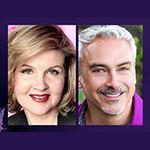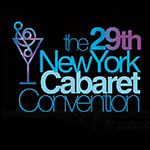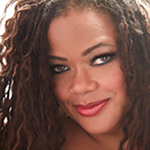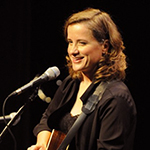Sarah Munro
Say Hello to You
The Pheasantry, London, U.K., January 10, 2017
Reviewed by Thanasis Kalantzis for Cabaret Scenes
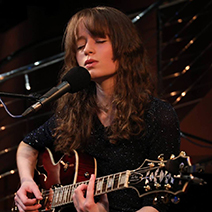
Sarah Munro is a remarkably gifted singer. Her voice is young, fresh, clear, luminous when it needs to be. It surrounds you like a warm hug and has the ability to somehow transport you back to places of the heart long neglected. At only 20, she has already collected some impressive accolades. She recently supported the one and only Jimmy Webb on his U.K. tour. Selecting her to play at the 2016 Cheltenham Jazz Festival, Jamie Cullum himself realized that “there’s some real raw talent here!
” Paul Carrack agreed and that’s why she is getting ready to embark with him on a U.K. tour ending at the London Palladium.
Say Hello to You is Munro’s debut album. She writes her own lyrics, while her father, Murray Munro, has composed most of the album’s music.
Playing the guitar artfully throughout her show (and, on a couple of occasions, the piano), examples of her work included the title song about a fictional character, Sally, who is trying to make sense of the world and its difficulties through singing, and the lovely “Make It Your Own,” about overcoming shyness, embracing yourself and trying to leave a mark, regardless of how you’re perceived.
Her famous song “For Eternity,” which questions the longevity and trustworthiness of feelings in relationships, was selected to be heard on Michael Ball and Jo Whiley’s BBC Radio 2 shows. “Paint the World” is a vivid snapshot in the life and times of a couple dancing on the banks of the Seine, painting the world with bright colors, while in “Lovebird” she is unsuccessful in turning away from love, despite the fact that the heart has been broken. In “Little Sister” she asks her sister to stand up on her feet after a separation and get over her depression, advising her to “not let your moment just fly away.”
At the end of the first set she gave us a really beautiful “The End of the World” (Arthur Kent/Sylvia Dee) and she finished the second set with an ethereal “Autumn Leaves” (Johnny Mercer/Jacques Prevert)—an homage to Eva Cassidy’s rendition.
Munro’s lyrics give voice to the concerns of her generation and raise valid questions that make you regard and respect her point of view. There is search for love, true feelings, fulfillment, acceptance—really, a search for a place in the world. But there’s something far too repetitious in the musicality of her repertoire. Actually, one might think that she sings one song dressed in different lyrics. There is no richness or diversity to the rhythm, all songs appear to have been written in one note—gentle, soft and dinner-party-backdrop-like—that verge on the placid and indistinguishable.
Also, a beautiful voice may be all that’s needed for the recording studio, but the stage is the one space where a singer is given the opportunity to turn into a performer. Instead of the title of “that next song,” I’d rather like to hear what prompted her to write it. Beyond the obviously really God-given singing talent, I am sure there is lots of character, and I would have liked to see it better communicated with the audience.
She was skilfully supported by her sister Alison Munro on the piano and Daisy George on bass.


